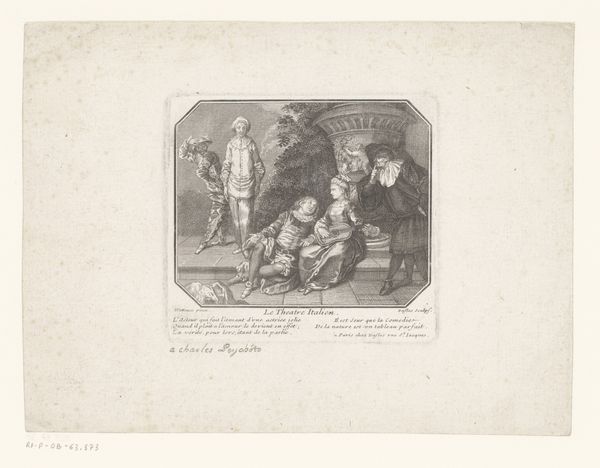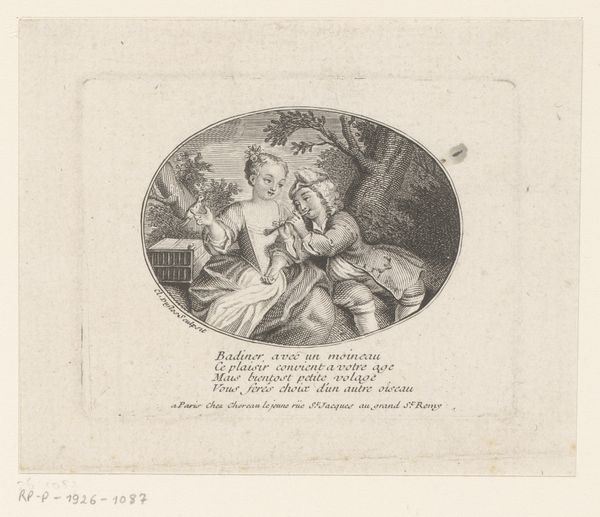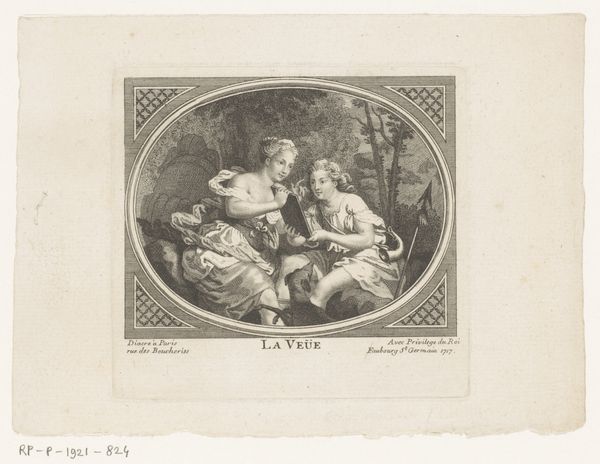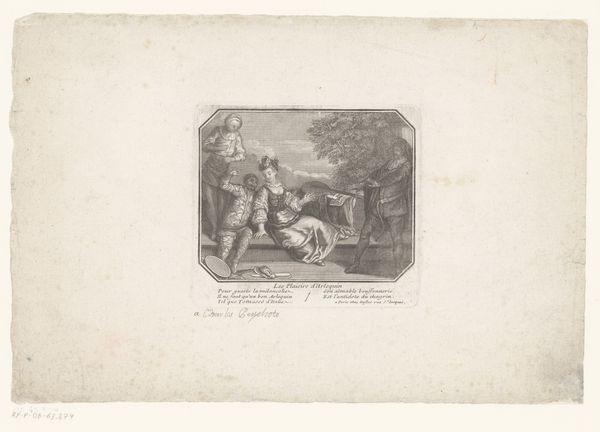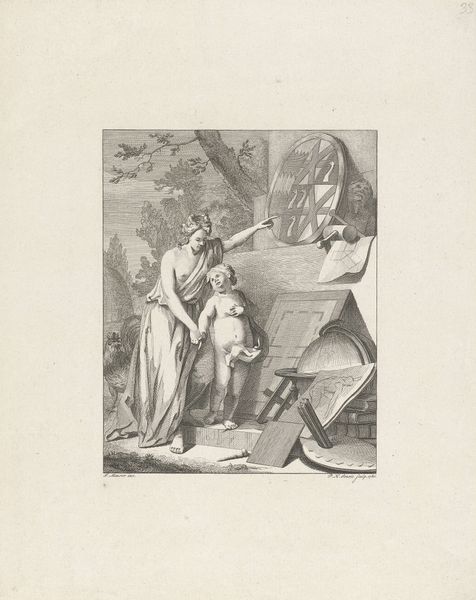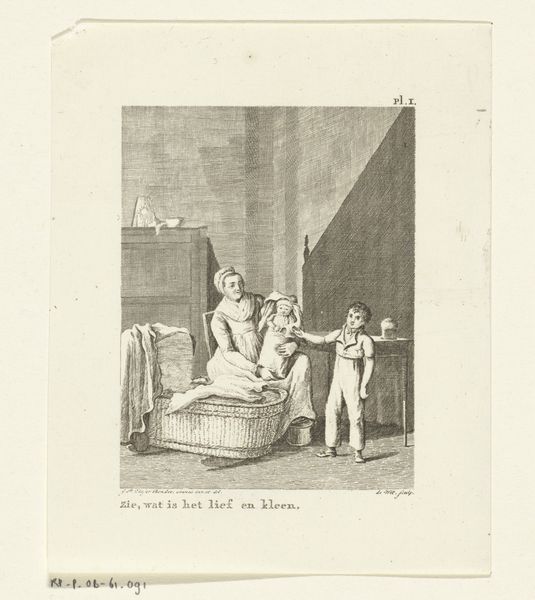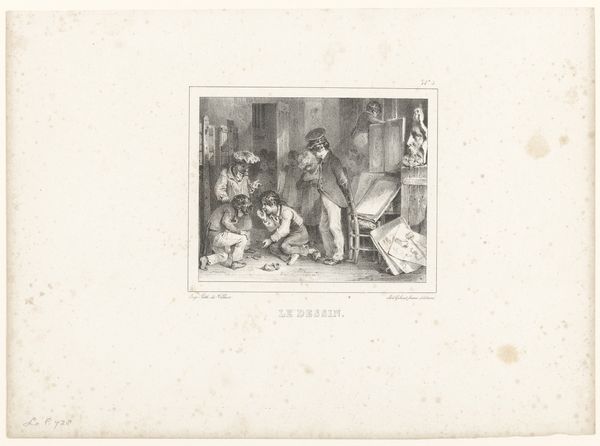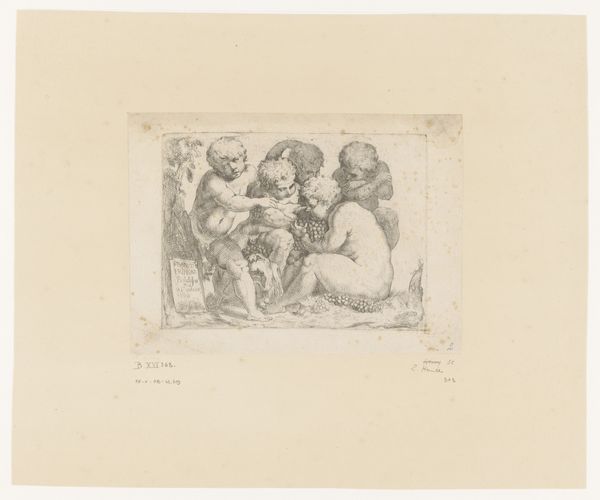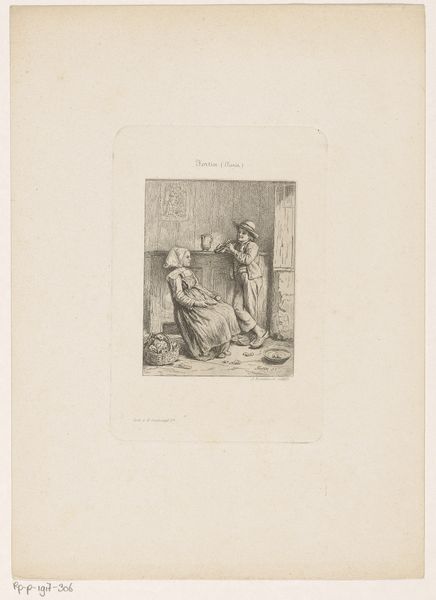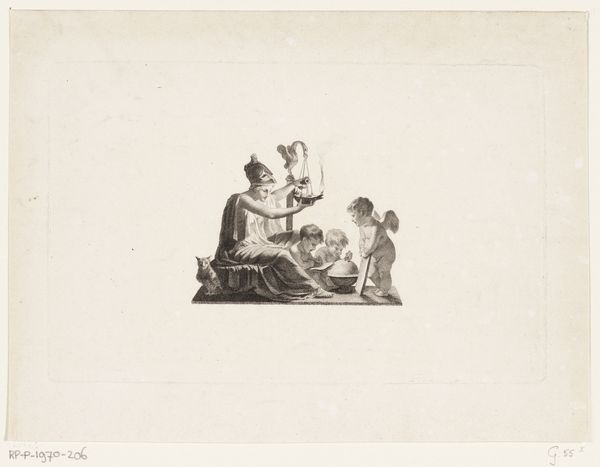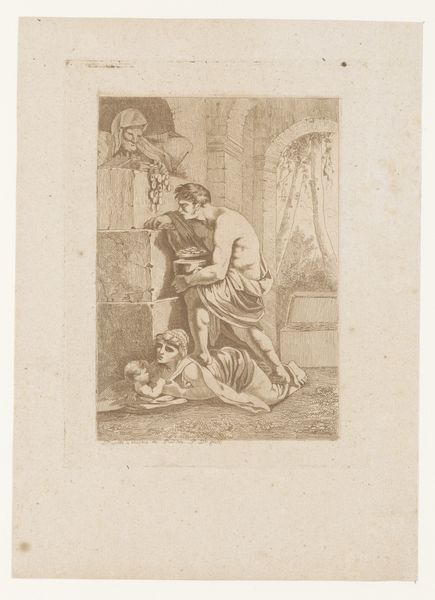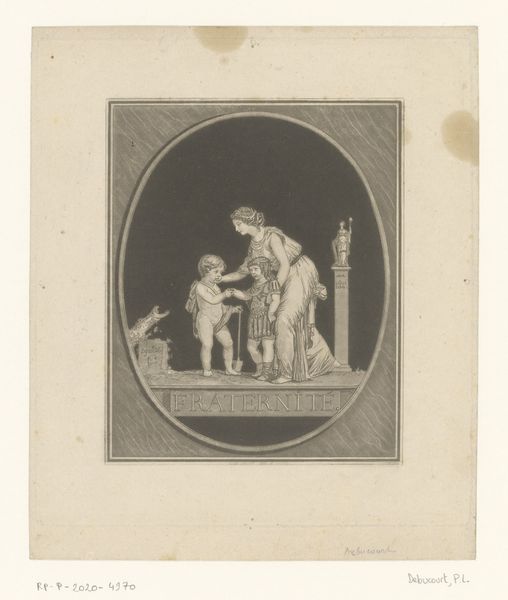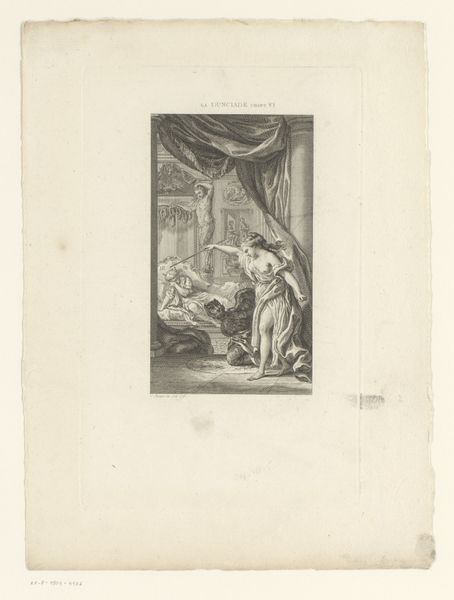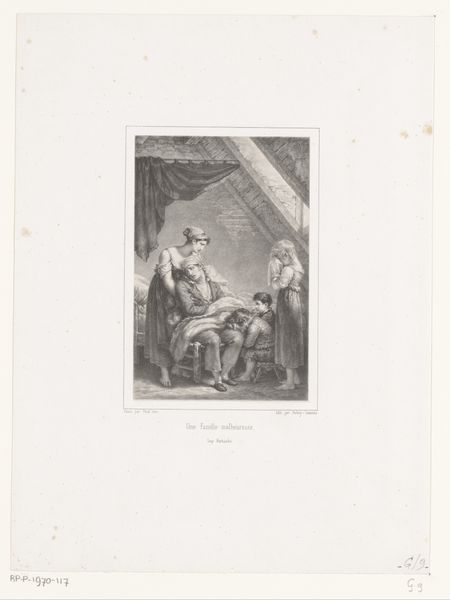
engraving
#
neoclacissism
#
aged paper
#
allegory
#
old engraving style
#
figuration
#
form
#
line
#
history-painting
#
engraving
Dimensions: height 95 mm, width 141 mm
Copyright: Rijks Museum: Open Domain
Jacques Louis Copia created this print, titled "Gelijkheid," sometime in the late 18th century, using engraving. It's a method of cutting lines into a metal plate, inking it, and pressing it onto paper. The crisp lines give the print its distinctive look, a contrast of light and dark. Notice how this method allows for fine detail, evident in the depiction of the figures. The process itself, requiring skill and time, reflects the values of craftsmanship and precision that were highly regarded during this period. Prints like these were crucial in spreading ideas, including those of the Enlightenment, far beyond the elite circles of society. They were relatively affordable and reproducible, making them powerful tools for communication and social change. The image of equality, therefore, wasn't just a concept; it was a message crafted and disseminated through the labor-intensive process of engraving, ultimately reaching a wider audience. Considering the print's material and the mode of its production, it becomes clear that art and craft cannot be separated from the social and political context in which they were made.
Comments
No comments
Be the first to comment and join the conversation on the ultimate creative platform.
